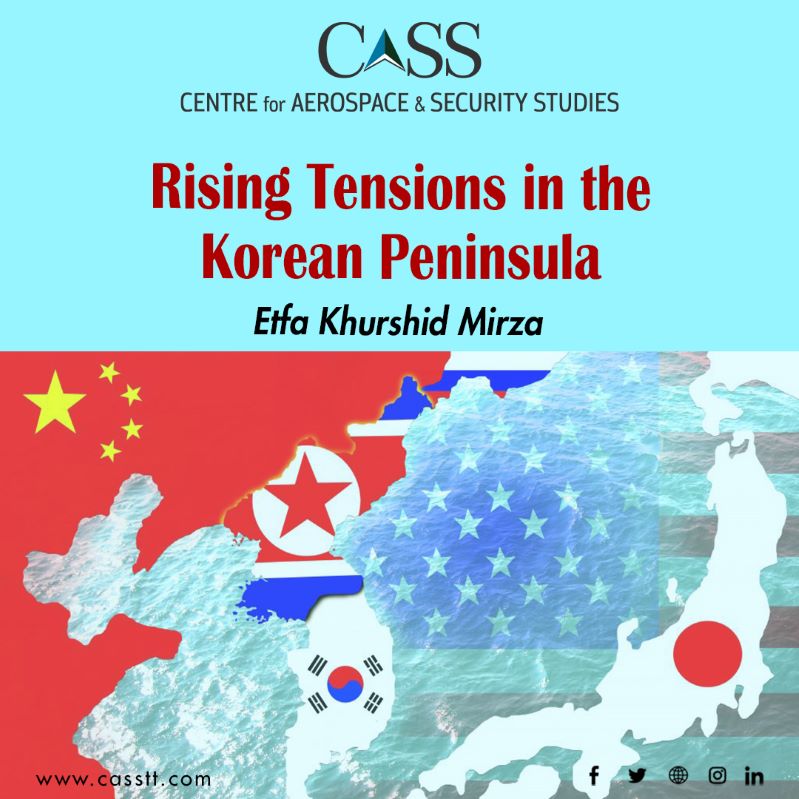The security situation between North and South Korea remains tense after North Korea sent five drones across South Korean territory on 26 December 2022. South Korea immediately reacted to the incursion and scrambled its fighter aircraft and attack helicopters to shoot down them down. The situation resulted in increased military presence and heightened surveillance along the border and highlights the ongoing tensions and mistrust between the two nations. Ironically, this was just one in a chain of events happening in the Korean Peninsula, among others.
More recently, South Korea’s President Yoon Suk Yeol expressed his country’s interest in developing nuclear weapons or asking the United States to consider redeploying them in the region. Though he clarified that the country had no active nuclear weapons development programme, such a statement could complicate the regional security environment and spark an arms race in the Peninsula.
The situation remains a major source of global concern and ongoing diplomatic efforts are not producing any fruitful results to find a peaceful resolution. One reason for this could be that the situation is not as simple as it appears to be. There are intricate bilateral and multilateral relationships inside and outside the Korean Peninsula with key players being North Korea, South Korea, Japan, the US, and China. In order to understand the current situation and foresee the future, one must understand the bilateral and multilateral engagements at all levels between these states.

Regarding the US and South Korea, the US Secretary of Defense Lloyd Austin visited South Korea in late January to reassure its ally that any attack on ‘one of us’ would be considered an attack on the entire US alliance and the country would be provided NATO-style security against the North Korean threat. The proposition to increase joint military exercises and cooperation with Japan – another key player and US ally in the region – was also considered.
Japan’s role has become immensely important after the ongoing security situation in the Korean Peninsula. Earlier in December 2022, Japan announced its National Defense Strategy. The policy calls for Japan to play a proactive role in regional and global security, including providing military support to its allies and engaging in collective self-defence, investing in research and development, increasing defense production and the technological base of the country. This has been seen as a response to the growing threat posed by North Korea’s nuclear weapons and ballistic missiles as well as China’s increasing military presence.
Tensions with North Korea and China have significantly improved relations between the US, Japan and South Korea. Late last year, the countries reaffirmed their trilateral partnership in security and other areas. Though there may be challenges with respect to Japan and South Korea given their historical differences, the agreement in important in light of US’ Indo-Pacific Strategy.
Similarly, there is a dimension to the North Korea-China relationship as well that needs to be considered while assessing the entire situation. Both countries were old allies. However, China voted against North Korea in 2006 following its nuclear tests. In 2019, China revived its relations with North Korea and Chinese President Xi Jinping paid a historic visit to the country and called their relationship ‘unshakable’. At the same time, China has also been unsuccessfully trying to woo South Korea to push Seoul away from Washington.
Last but not least, we have US-China relations with North Korea considered to be a potential area of cooperation between the two global powers regarding denuclearisation and promoting stability.
Given high-stakes for the two global powers – US and China – and their corresponding relations with regional players, the Korean Peninsula matrix remains ever more complex. With rising competition and mistrust between regional states, there is a need to promote security cooperation and diplomacy through negotiations and dialogue, otherwise, there is high risk of a major conflict in Northeast Asia due to increasing nuclear and missile developments by North Korea.
Etfa Khurshid Mirza is a Research Assistant at the Centre for Aerospace & Security Studies (CASS), Islamabad, Pakistan. The article was published in Modern Diplomacy. She can be reached at cass.thinkers@casstt.com.




